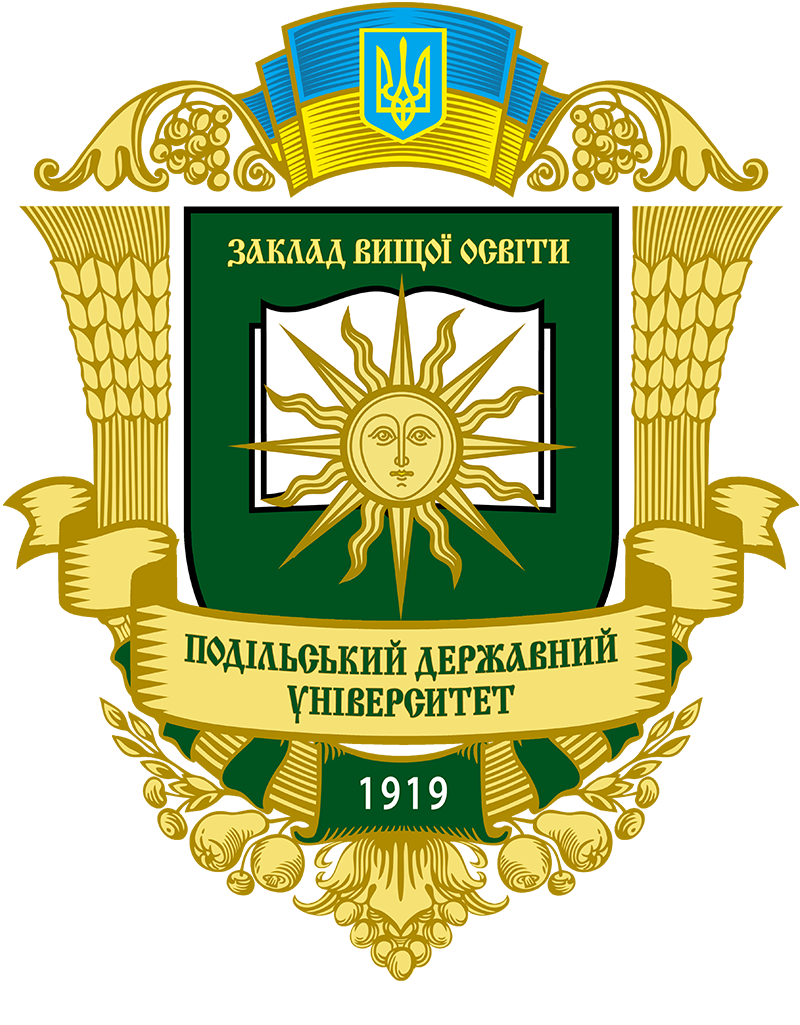EDUCATIONAL POTENTIAL OF ARTIFICIAL INTELLIGENCE IN LANGUAGE TRAINING AT AGRARIAN HIGHER EDUCATION INSTITUTIONS
DOI:
https://doi.org/10.37406/2521-6449/2025-1-4Keywords:
digitalization of education, artificial intelligence, agricultural higher education institutions, language training, personalized learning, AI tools, chatbotsAbstract
The article examines modern approaches to the implementation of artificial intelligence in the educational process, particularly in the language training of students at agricultural higher education institutions. The study emphasizes the importance of integrating innovative digital technologies to enhance learning efficiency, develop key language skills, and build professional competencies among students. The authors highlight the potential of adaptive learning based on artificial intelligence, which provides a personalized approach for each student depending on their level of preparation. Educational platforms and tools actively used in the process of learning foreign languages, such as Duolingo, Grammarly, ChatGPT, DeepL, Speechling, LingQ, and others, are analyzed. Their advantages in improving writing, listening, speaking, and reading skills are described. Special attention is paid to platforms that foster interactive engagement with students, improve access to knowledge, and help optimize the time allocated for independent work. It is noted that the use of artificial intelligence compensates for the limitations of classroom hours. The article emphasizes the importance of developing digital competencies among teachers and students to ensure the effective use of artificial intelligence capabilities. Ethical considerations and risks associated with the implementation of such technologies are also highlighted. An algorithm for organizing language training sessions for students of agricultural specialties using artificial intelligence technologies is proposed. It includes an introductory part with motivational discussions, a main part using artificial intelligence tools, and a concluding part with creative assignments. The results of the study confirm that the application of artificial intelligence technologies in students' language training increases motivation, enhances the efficiency of material assimilation, and contributes to the preparation of qualified specialists capable of working in the digital economy.
References
Бруяка А., Коваленко В., Мар’єнко М. Досвід впровадження штучного інтелекту в процес викладання дисципліни «інформаційно-комунікаційні технології навчання, управління та підтримки науково-освітніх досліджень». Перспективи та Інновації Науки. Вип. 4(38). 2024. C. 94–105. URL: https://doi.org/10.52058/2786-4952-2024-4(38)-94-107.
Гриценчук О. Використання штучного інтелекту в освіті: тенденції та перспективи в Україні та за кордоном. Вісник кафедри ЮНЕСКО «неперервна професійна освіта ХХІ століття». Вип. 10. 2024. С. 152–161. URL: https://doi.org/10.35387/ ucj.2(10).2024.0012.
Лубко Д. В., Шаров С. В. Методи та системи штучного інтелекту: навч. посіб. Мелітополь. 2019. URL: http://eprints.mdpu.org.ua/id/eprint/5295/.
Національна стратегія розвитку штучного інтелекту в Україні 2021-2030. Київ,2021. URL: https://wp.oecd.ai/app/ uploads/2021/12/Ukraine_National_Strategy_for_Development_of_Artificial_Intelligence_in_Ukraine_2021-2030.pdf.
Концепція розвитку штучного інтелекту в Україні. Київ, 2020. URL: https://zakon.rada.gov.ua/laws/show/1556-2020- %D1%80#Text.
Краснопольський В., Пахомова Т., Курилова Ю. Освітній потенціал штучного інтелекту для організації самостій- ної роботи здобувачів у процесі вивчення іноземної мови. Актуальні питання у сучасній науці. № 7(13). 2023. С. 587–599. https://doi.org/10.52058/2786-6300-2023-7(13)-587-599.
Піддубцева О. І. Використання технології CHATGPT під час вивчення іноземних мов у закладах вищої освіти. Інно- ваційні наукові дослідження у галузі педагогіки та психології : матеріали Міжнар. наук.-практ. конф. (м. Запоріжжя, 14–15 квіт. 2023 р.). Львів-Торунь : Liha-Pres, 2023. C. 82–84. URL: https://dspace.dsau.dp.ua/handle/123456789/8311.
Резунова О.С. Формування навчальної самоефективності здобувачів вищої освіти за допомогою штучного інте- лекту. Штучний інтелект у науці та освіті (AISE 2024). Artificial intelligence in science and education : зб. матеріалів міжнар. наук. конф. (Київ, 1-2 берез. 2024 р.) [Електронний ресурс] / [упоряд.: А. Яцишин, В. Матусевич, В. Коваленко]. Київ : УкрІН- ТЕІ, 2024. С. 234 – 236. URL: https://dspace.dsau.dp.ua/handle/123456789/10525.
Семак Л.А. Застосування інтернет-ресурсів під час викладання української мови у закладах вищої освіти. Цілі ста- лого розвитку третього тисячоліття: виклики для університетів наук про життя : матеріали міжнар. наук.-практ. конф. Київ: НУБІП, 2018. С. 289–291. URL: http://dspace.dsau.dp.ua/jspui/handle/123456789/788.
Pakhomova T. O., Drach A. S., Vasilieva P.A., Serdiuchenko Y. O., Piddubtseva O. I. The use of educational computer programs in the training of foreigh language teachers for speech activity. Revista EntreLínguas. Araraquara, 2021. V. 7. n. esp. 4. P. 984–997. URL: https://doi.org/10.29051/el.v7iesp.4.15664.








